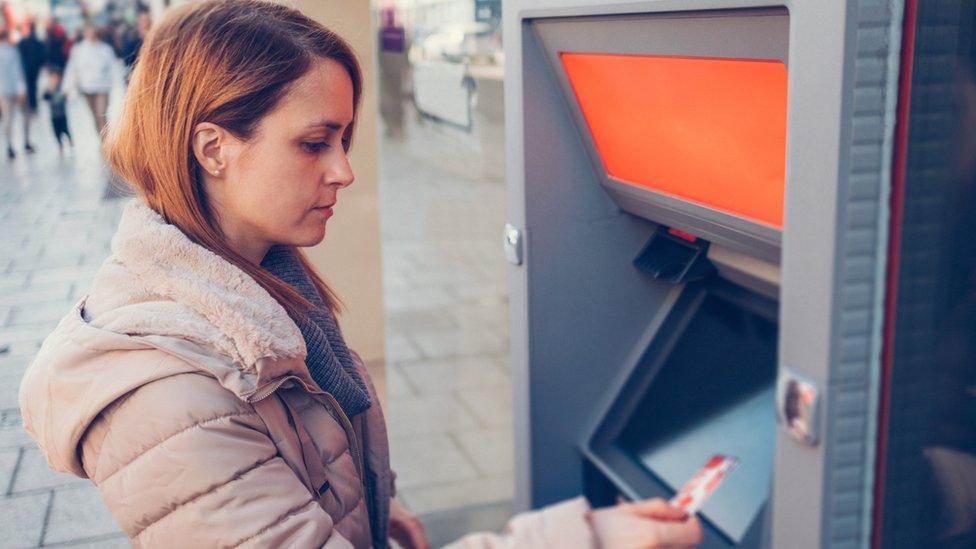London turning cashless faster than rest of UK, figures show
- Published
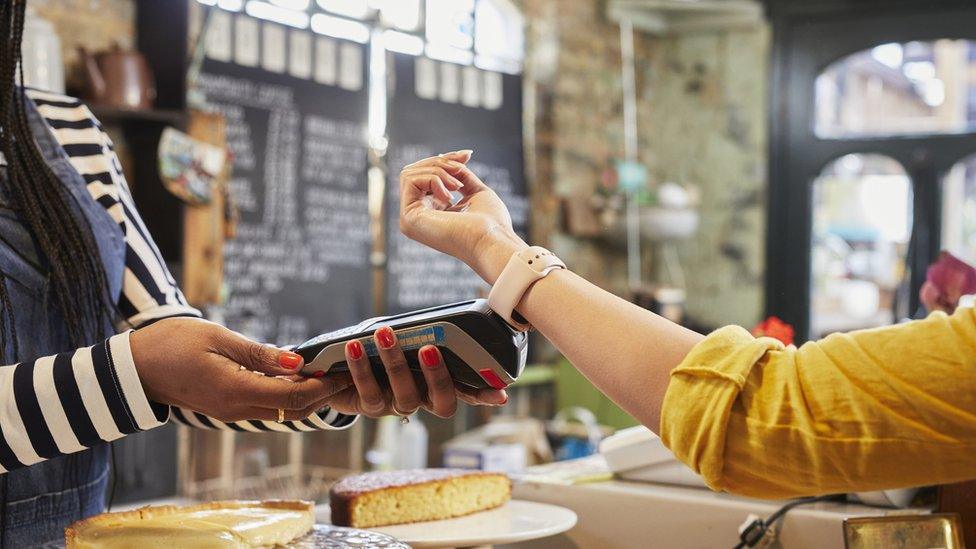
Cash may no longer be king in the capital as ATM numbers drop
Londoners are moving away from cash faster than the rest of the country, according to new data.
Figures from Link, the firm behind the majority of the UK's cash machine network, shows the capital's residents and workers are taking out £500m less every month from machines compared to pre-pandemic levels.
There are also 2,069 fewer cash machines than there were in 2019.
It comes as some businesses are increasingly rejecting cash.
Pizza Hut is one large chain that has gone cashless, external, but some independent businesses, like restaurant The Indians Next Door in Spitalfields, East London, also only take card and digital payments.
Manager Tomasz Jakobowski said most people in the area wanted to pay by card anyway.
"It's easier, easy just to tap by card or by phone, easy, you pay and you go," he said.
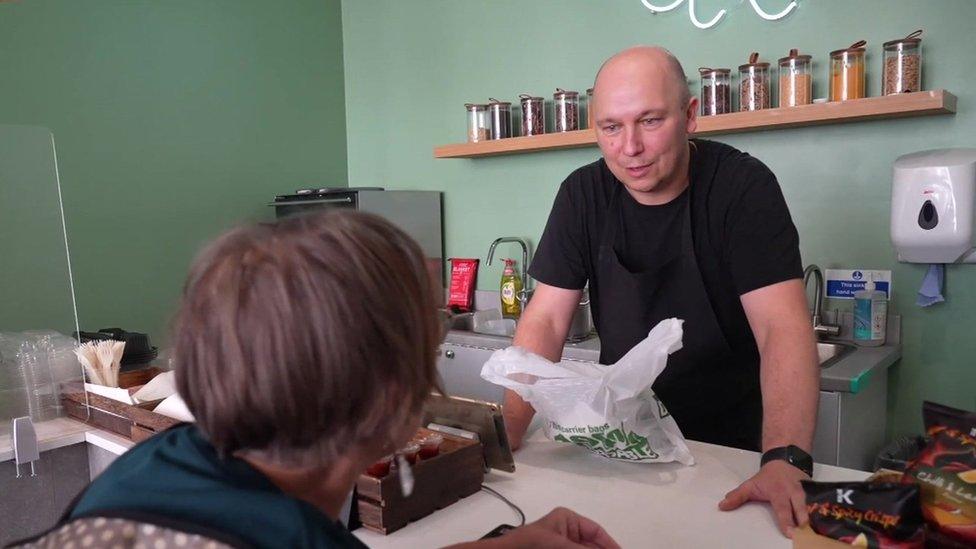
Tomasz Jakobowski says his customers have embraced the move to cashless
Some stalls at nearby Spitalfields Market are also cashless. But less than two miles away in Watney Market, in Shadwell, it is quite the opposite. Traders there said cash remained king.
Makshudur Rahman, who runs the Mahfuj Jewellery shop, told BBC London: "In this area, some people [are] on very low incomes so they prefer cash because when you pay by card you don't know how much you're spending."
Some are concerned that the poorest and most vulnerable groups could be affected by businesses going cashless
Link's data suggests many still rely on cash to budget their finances. And they are likely to be among the most deprived people in the capital.
Nick Quin, head of financial inclusion at Link, said: "Cash remains vital to 700,000 Londoners.
"London is using less cash, but it's not going cashless yet."
Abi Wood, from Age UK London, raised concerns about cashless transactions excluding older people.
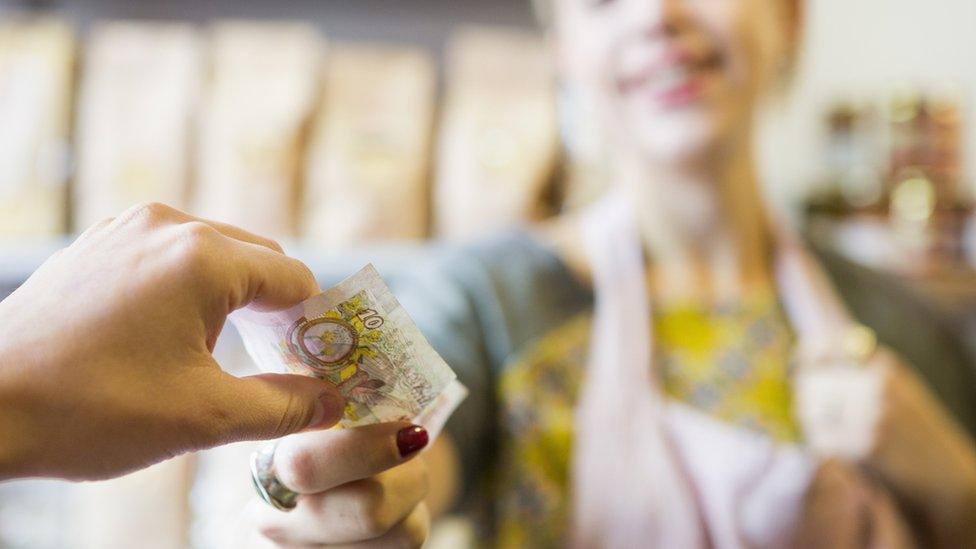
Concerns have been raised for elderly people or those budgeting on low incomes
She said while some were comfortable using apps and cards to pay for things, there was a "sizeable minority" who relied on cash.
"This move to a society where cash is increasingly rarely being accepted, it's isolating them," Ms Wood added.
The UK government has said it does not plan to introduce a similar rule to one in Slovakia, where the parliament passed an amendment to the constitution guaranteeing citizens the right to pay in cash.
A Treasury spokesperson told the BBC it was up to businesses what payments they accepted, adding: "We have taken action to encourage businesses to continue accepting cash by ensuring that the vast majority will be within three miles of cash withdrawal and deposit facilities."

Follow BBC London on Facebook, external, Twitter , externaland Instagram, external. Send your story ideas to hellobbclondon@bbc.co.uk, external
Related topics
- Published30 March 2022
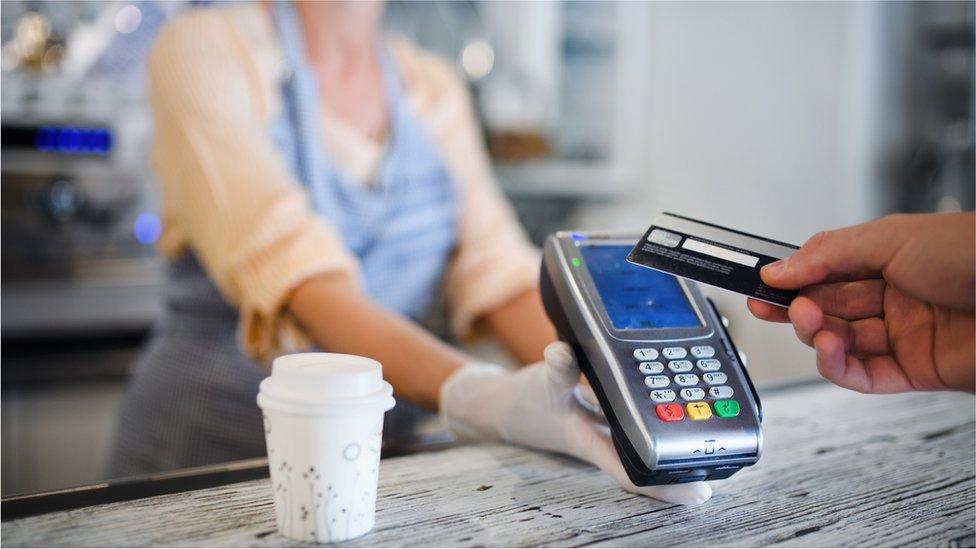
- Published15 December 2021
